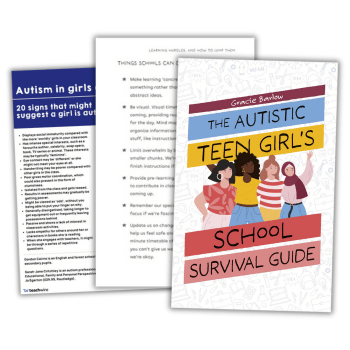If SEN Isn’t Causing A Child’s Poor Attainment, It’s Our Job To Find Out What Is

Countless things can affect a child's attainment and it's our responsibility to play detective, says Nancy Gedge

- by Nancy Gedge
- Experienced teacher, SENCo and author Visit website

I don’t know about you, but sometimes I find it tricky to tell if a child really does have a special educational need.
Children like my son Sam, who has Down’s syndrome, who have a visible disability that everyone can see, in a sense, aren’t so difficult. An at-birth diagnosis, a blood test that shows the presence of an extra chromosome, is a cast-iron fact (if a fact can be described that way).
The way that it is expressed in the individual is different, but children with it generally follow a well-known pattern in learning. There is no need for the primary teacher to sit, scratching her head and wondering if it exists.
A lack of attainment is often the thing that alerts a teacher to a special educational need or disability, but the trouble is that, as with anything to do with children, SEND is a little bit more complicated than that. As any teacher and any parent knows, there are any number of things that can affect how a child gets on in school – and a large number of these have nothing to do with special needs and everything to do with life.
Take hunger. Hunger is often a factor that hits the headlines. Children regularly turn up at school with no breakfast and, unsurprisingly, cannot concentrate on their school work.
I’ve lost count of the number of times a squirming child has told me that they can’t think because their belly hurts. The wafts of dinner coming from the kitchen followed by the trail of Reception and KS1 children to the hall for lunch has the power to destroy a lesson and shut down learning for the hungry.
For some children, getting a breakfast at all is something remarkable and for others, and I can include my own children in this, breakfast is taken early, well before the beginning of the school day, and it’s a long time until lunch.
Family circumstances also have an effect on children’s ability to do well in their lessons. The breakdown of parental relationships, whether over a long period of time or in a sudden flair-up of violence, a death in the family, of a relative or a pet, an illness or a lost job can all have a long-lasting effect on children and a negative effect on their attainment.
While most parents can, and do, provide their children with loving homes within which they can flourish, some, for whatever reason, cannot, and children’s attainment suffers.
Children are renowned for ‘taking things in their stride’, and as a teacher I have been witness to many who have entered the calm predictability of my classroom (get your books out, silent reading, use a ruler – I can spot a wobbly line at a hundred paces) with a sense of relief.
When they get to school, where everything is the same as it was before, they can forget, or put to one side, the challenges they are dealing with at home. But it can take a while for a change in family circumstances to settle in the private life of a child, and for the effect to lessen on their public life in school, in terms of how well they are doing. For teachers, building that open relationship with parents will help immeasurably in explaining what is going on when a child fails to make expected progress. They can tell you anything from when they had a bad night, when they are under the weather, or when there is a major family upset. A period of a lack of attainment due to family circumstances is entirely typical. A lack of progress might ring a SEND alarm bell, but it doesn’t tell the whole story.
When there is a special need, such as dyslexia or autism, and a child is getting on well with their work, parents can tell you in which areas of their lives they aren’t, and where and when they need support, because the reverse is also true; you can have SEND and attain very well indeed.
As a teacher, I need to make like a detective in sorting out the difference between a special educational need and special circumstances. As a parent, I can tell instantly. Last week we moved house. Sam, and his younger siblings, are all at sea. For a short while they are going to need a little bit of extra support and understanding while they come to terms with it – and find all of their toys!
Nancy Gedge is a consultant teacher with the Driver Youth Trust and author of Inclusion for Primary School Teachers. She has also been TES Teacher Blogger of the Year. Follow her on Twitter at @nancygedge and read her blog at notsoordinarydiary.wordpress.com.










